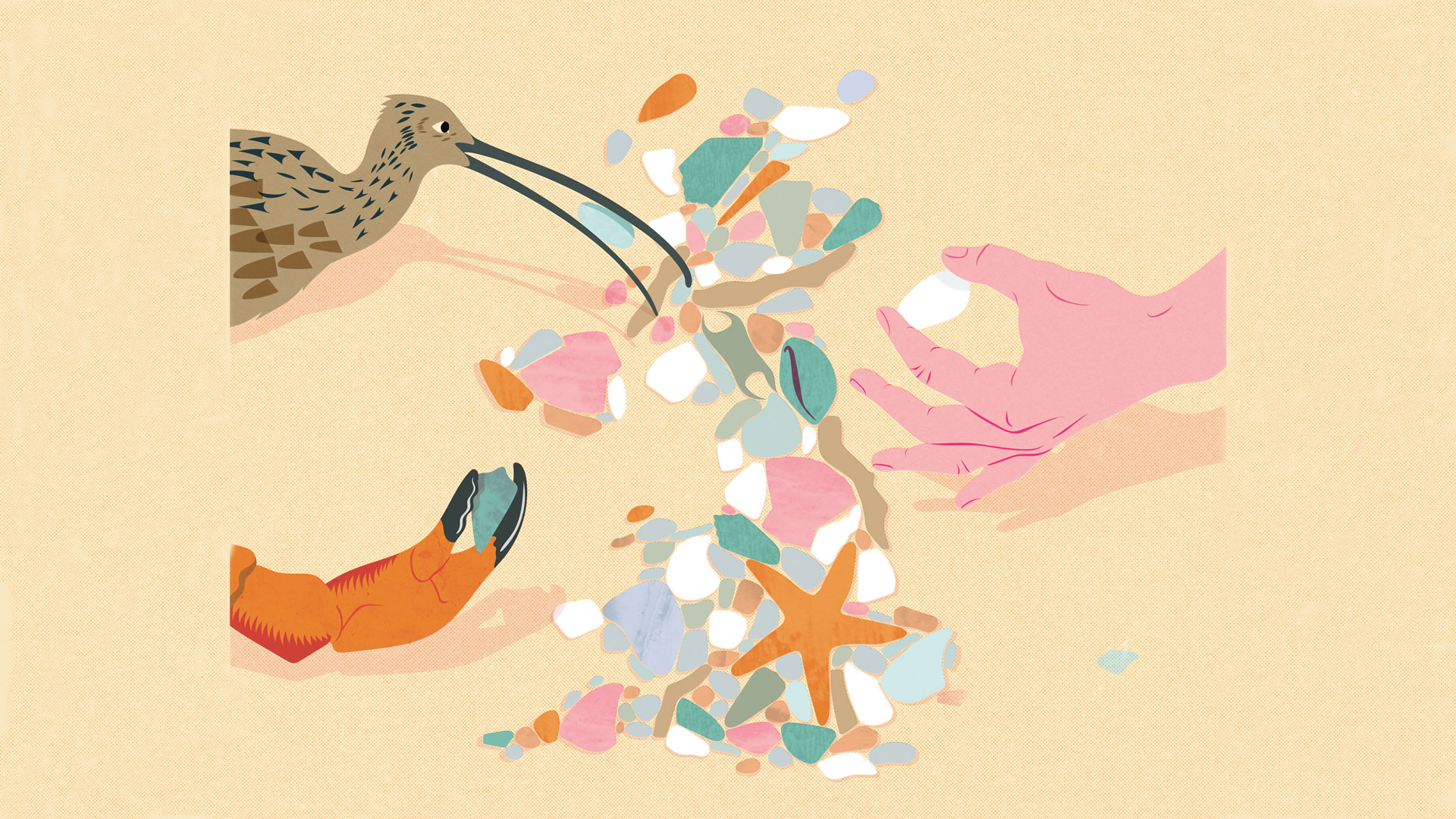Lucy Cooke is one of the presenters of Beach Live: jurassic Coast on BBC Four this week.
There is a lot of natural history on a beach. They are dynamic locations that cater for marine, terrestrial and airborne animals so you get a huge amount of variety.
Rock pools are amazing places to explore. All through the year you’ll find anemones, prawns and crabs, but in the summer some species come closer to shore in order to breed, and therefore end up getting stranded in rock pools. When it’s a very low tide you might be lucky enough to find a common octopus.
You’ll always find that there’s a layer of seaweed just above the high-tide mark. That’s called the strandline and that seaweed in itself is a valuable resource for sand hoppers and small crustaceans. Those in turn are a valuable food source for birds like curlews. What looks like a useless scrap of seaweed, almost a blight to our eyes, is a source of an enormous amount of food and life for a whole chain of animals.
We just need to be mindful and respectful of what’s around us and not think only of our own pleasure
Nature and humans can co-exist very happily alongside one another on beaches, we just need to be mindful and respectful of what’s around us and not think only of our own pleasure. If you’re rock pooling, put everything back as you found it. If you notice birds anxiously dive bombing you and seeming alarmed, it may well be that you’re near a nest. There are a number of birds that nest on shingle beaches and if you get too close you might step on them – the eggs are disguised – or you might alarm the parents so much that they abandon it.
Beaches are also a fantastic place if you’re looking for fossil finds because the waves do so much of the job of exposing new ones all the time. You get the best finds after landslides, with the mixture of erosion from both the waves and the weather that results in massive exposure.





